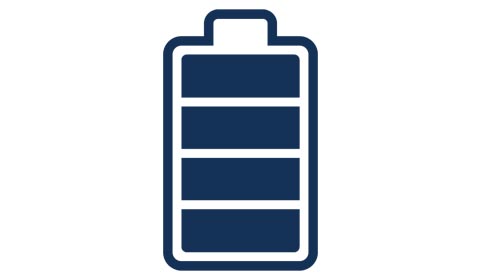Chillers for Renewable Energy Storage Case Study
Introduction
As power consumption increases across nearly every industry, having a consistent and reliable energy source is critical. Increasingly, companies are turning to renewable energy sources such as wind and solar farms to meet these growing energy needs. While highly efficient, these renewable sources can be inconsistent, depending on external factors such as weather or time of day to produce substantial amounts of energy.
To ensure that power is available when needed and not just when it can be generated, Battery Energy Storage Systems (BESSs) are installed on location at wind and solar farms. BESSs are standalone structures that accumulate and store energy in rechargeable batteries for later use.
Inside of each BESS, the charging and discharging of rechargeable Lithium-Ion batteries generates an extremely high heat load. Dissipating the heat within the system is critical to ensure that the batteries do not lose capacity, become unreliable, or even catch fire. As renewable energy generation continues to grow in popularity and Battery Energy Storage Systems become more commonplace across the world, many leading energy storage companies and battery producers rely on Boyd's extensive thermal expertise to keep them cool and performing optimally.
Project Details
Customer:
Battery Energy Storage System Manufacturer
Application:
Battery Energy Storage System Cooling
Technology:
Door-Mount Recirculating Chiller
Industry:
Battery
Location:
Global

Chiller for Renewable Applications Challenge
While Boyd has decades of experience designing custom cooling systems for high heat loads and precise temperature control, designing one specifically for BESSs posed a unique set of challenges.
First, each Battery Energy Storage System is filled with dozens of battery cells, generating an extreme thermal load up to 9kW. This means that the cooling system would need to precisely control temperature and effectively dissipate extensive heat created by battery cell charge and discharge cycles.
In addition, most cooling systems operate indoors, which allows for control over external conditions such as operating temperature and accessibility for service and maintenance. Given that BESSs are implemented outdoors across many different climates, they need to operate reliably regardless of temperature variations and rough external conditions. Durability in weather extremes and harsh conditions is key. Many of these are located on remote wind or solar farms, where serviceability and maintenance can be limited, so the cooling system would need to remain reliable for the life of the installation.
Finally, as BESSs are designed to maximize space for as many battery cells and as much energy storage density as possible, the cooling system needs to be compact. Many traditional or larger cooling solutions are not feasible given the tight dimensions of the system.
Chiller Project Goals
- Design a cooling system that could reliably dissipate extreme battery heat loads
- Ensure the system can handle extreme outdoor temperature variations and environmental conditions
- Fit the cooling system within the narrow dimensions of the unit
Boyd’s Chiller for Renewable Energy Storage Solution
Given the intense heat generated by battery charge and discharge cycles, it was quickly apparent that the most effective solution would be to implement a Recirculating Chiller into the BESS. Boyd's Recirculating Chillers circulate coolant underneath the batteries to keep them at optimal operating temperature during use. Boyd's Chillers also have precise temperature control and have had a long history of successful implementation in many similar industrial and power generation applications in the past.
Chillers are one of the most reliable liquid cooling systems, alleviating many concerns regarding maintenance and service. Boyd's Recirculating Chillers have incredibly long lifespans with over one hundred thousand (100,000) unit installations currently operating in the field across a variety of industries. Boyd's chillers also help avoid potential issues with predictive maintenance monitoring and leak detection sensors and alarms designed into the systems.
Since Battery Energy Storage Systems are located outdoors across many climates and environmental extremes, it is also crucial to ensure that the Chillers can handle large swings in ambient temperature and are designed to withstand exposure to wind, rain, UV and other elements. Boyd's thermal experts analyzed many different potential scenarios with extremely high and low environmental temperatures to ensure that the Chillers would reliably operate even in fluctuating climates. After experimenting with different components, Boyd's engineering team developed a construction featuring a specific compressor and high-performing refrigerant that is effective at cooling the system, even at temperature extremes. It was developed with ruggedization in mind to withstand extreme conditions.
Battery Energy Storage Systems in remote locations also mean that there is no place for a standard, roll-away style Chiller. Relying on decades of experience creating custom Chiller shapes and sizes, Boyd's design engineers found that a door-mounted Chiller design could reliably cool the system and withstand climate variations and extreme conditions without taking up valuable space meant for battery cells.


Boyd’s Chiller for Renewable Energy Storage Results
Combining extensive thermal management experience with technological innovation, Boyd designed a custom door-mounted Recirculating Chiller that successfully met all the strict thermal management, durability, and size requirements for Battery Energy Storage Systems. Boyd Door Mounted Chillers (DMCs) have since been implemented on BESSs across the world, amplifying the performance and reliability of battery packs by keeping them at optimal operating temperatures.
Have questions? We’re ready to help!
